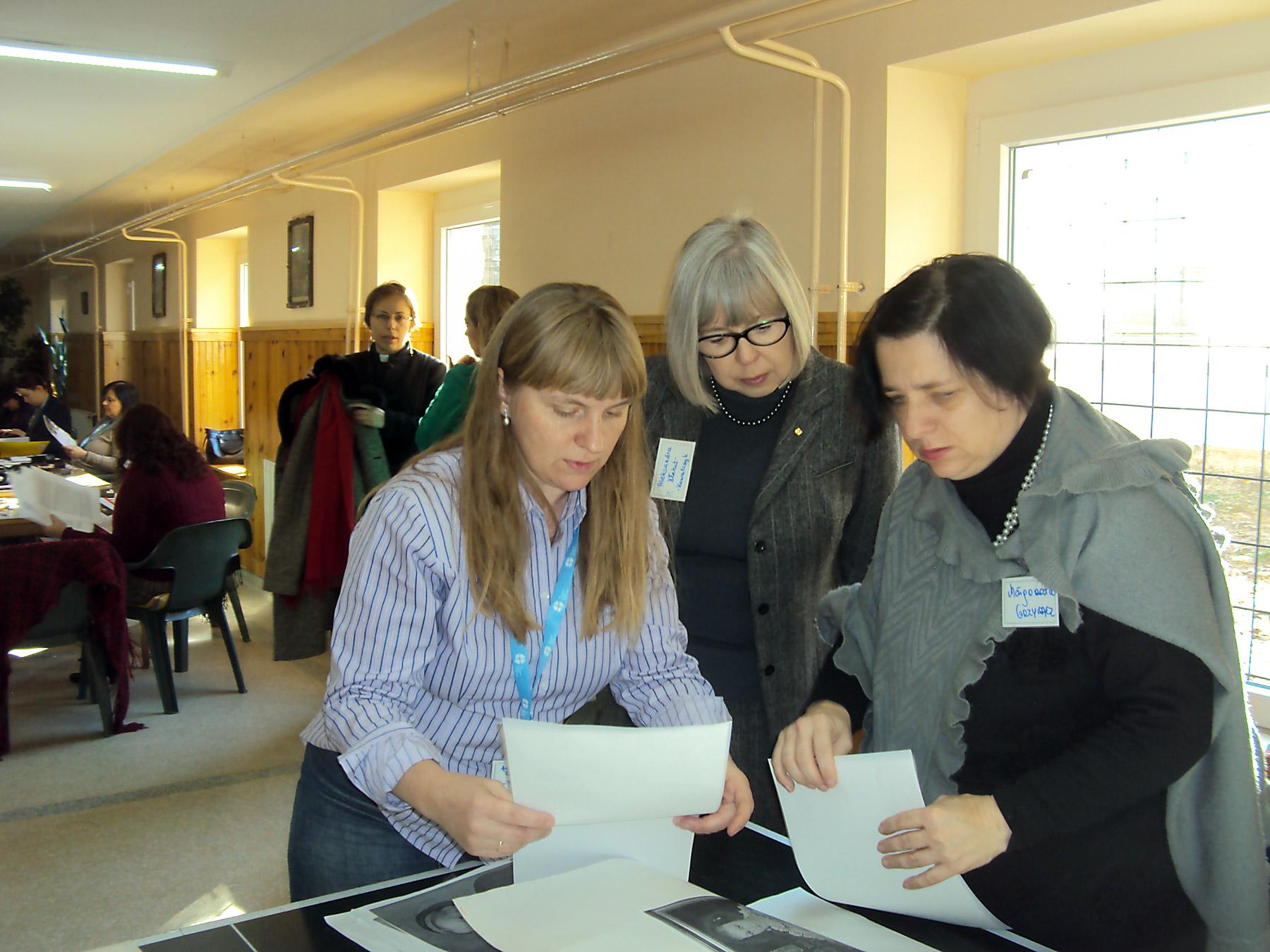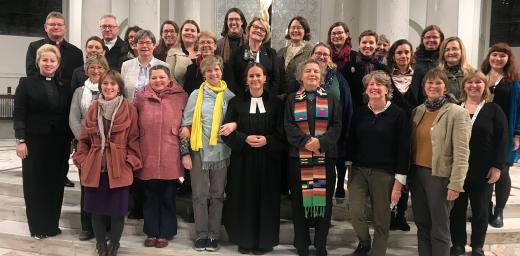Women Doing Theology in Central Eastern Europe

Polish delegates sharing women's stories from their church. Photo: LWF/C. Rendon
LWF WICAS Meeting Affirms Past and Present Contribution of Women in the Church
(LWI) – Nineteen female theologians representing eight countries in Eastern and Central Europe gathered in Hungary last month to reflect on the contribution women have made to the Reformation movement and the issue of gender justice in church structures and wider society today.
Ahead of the 500th anniversary of the Lutheran Reformation in 2017, the meeting on 30 November in Piliscsaba near the capital, organized by the LWF Women in Church and Society (WICAS) program, highlighted the important – but often forgotten role - women from countries such as the Czech Republic, Estonia, Hungary, Latvia, Poland, Romania, Russia and the Slovak Republic have played in Lutheran churches since the days of the Austrian-Hungarian empire. The group also shared present-day stories of how women are carrying forward the diaconal work, widening the perspective of their churches to other contexts and realities, and living out their faith in practice as representatives of the ongoing Reformation.
They also affirmed the importance of building sisterhood with the forgotten women of the LWF Central Eastern Europe region, whose conviction to serve in the church became for many a source of pain and conflict.
The theologians agreed that “Doing justice to women in the ongoing Reformation” by recovering, writing and disseminating their stories means also to affirm the gifts and the leadership of women in the church today. The notion of “women doing theology” was also adopted at the meeting as a more comprehensive definition, which not only includes women with different levels of training in theology and women in ministry, but also lay women, who have a deep commitment to the church and are active in many pastoral and diaconal dimensions.
“This notion does not exclude the importance of creating and promoting a network of women theologians in the Eastern European region and to enhance, share and make visible their theological production,” said Agnieszka Godfrejów-Tarnogórska, coordinator of WICAS network in Central Eastern Europe.
At its 1984 Seventh Assembly in Budapest, the LWF agreed to ensure the balanced representation of women, men and youth in the communion’s governing bodies. Almost 30 years later, the meeting in Piliscsaba focused on understanding gender justice. The group explored the principles that sustain the LWF Gender Justice Policy approved in June 2013 by the Council, and launched on 10 December in Geneva.
Rev. Dr Elaine Neuenfeldt, LWF executive secretary for WICAS at the Department for Theology and Public Witness, referred to both “gender” and “justice” in their biblical dimension of meaningful relationships between women and men in church structures as well as in society. She emphasized the need to understand the LWF Gender Justice Policy as a tool, as a set of “markers” that can be decisive in discovering ways of realizing God’s call for relationships based on justice.
The meeting also explored the concept of gender in the context of contemporary challenges such as migration, poverty, the salary gap between women and men, unpaid work, family life and domestic violence.
The WICAS network works toward the full participation of women in the communion’s life and pursues this commitment at all levels of LWF.





